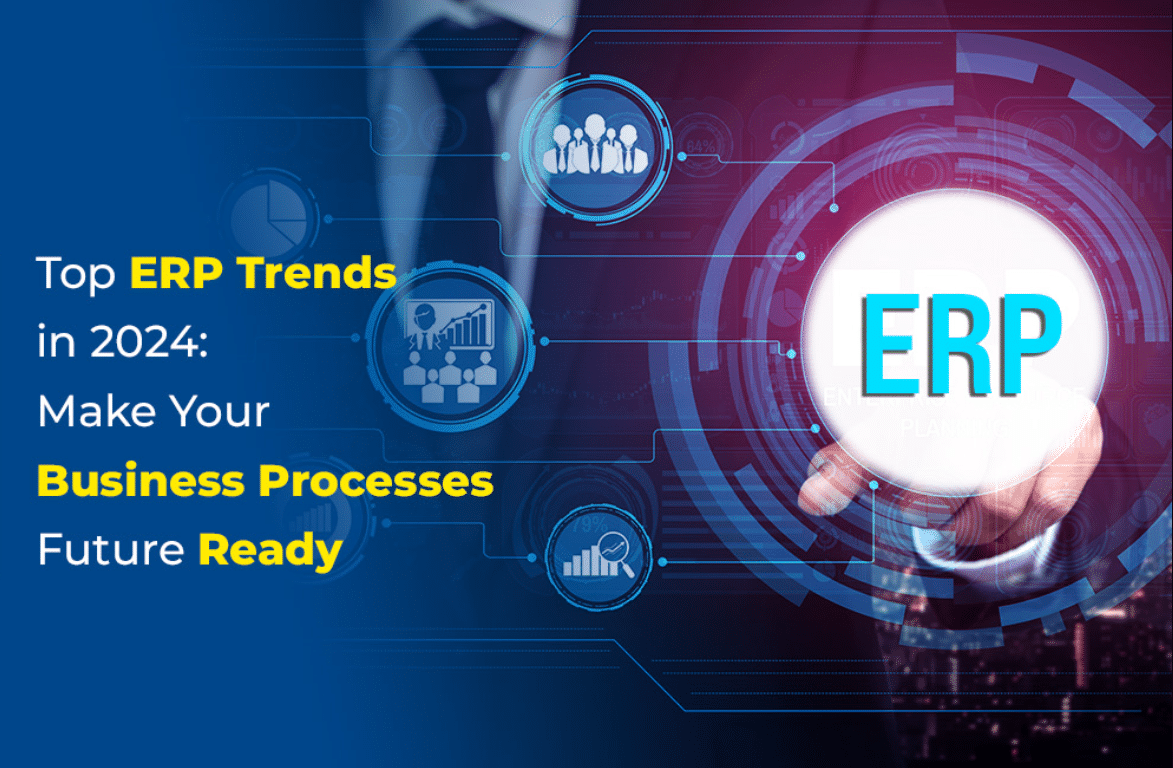Introduction
In the fast-paced world of business, staying ahead of the curve is essential. One way companies are achieving this is through the implementation of advanced Enterprise Resource Planning (ERP) systems. As we step into 2024, ERP systems are no longer just a luxury for large enterprises but a necessity for businesses of all sizes looking to streamline operations, improve efficiency, and drive growth.
The Growing Importance of ERP Systems
ERP systems have become the backbone of modern business operations. These integrated software platforms allow companies to manage and automate various business processes, from finance and accounting to human resources and supply chain management. The ability to have a single source of truth across all business functions is invaluable in today’s data-driven world.
Why 2024 is a Pivotal Year for ERP Adoption
2024 is shaping up to be a crucial year for ERP adoption. With the rapid advancement of technology, companies are now able to leverage more sophisticated ERP systems that offer greater flexibility, scalability, and functionality. The shift towards digital transformation, accelerated by the global pandemic, has also heightened the demand for ERP systems as businesses seek to remain competitive in an increasingly complex global market.
What is an ERP System?
Definition and Core Functions
An ERP system is a software platform that integrates various business processes and functions into a single unified system. This integration enables companies to manage core business functions, such as finance, supply chain, operations, reporting, and human resources, with a high degree of efficiency and accuracy.
The Evolution of ERP Systems Over Time
The concept of ERP has evolved significantly since its inception. Originally designed to streamline manufacturing processes, modern ERP systems now encompass a wide range of business functions and are tailored to meet the needs of different industries. The shift from on-premises systems to cloud-based solutions has further expanded the reach and capabilities of ERP systems.
Key Features of Modern ERP Systems
Integration Across Business Functions
One of the defining features of modern ERP systems is their ability to integrate various business functions into a single platform. This integration ensures that all departments within a company are working with the same data, leading to better collaboration and more informed decision-making.
Real-Time Data Analytics
ERP systems are now equipped with advanced data analytics capabilities that allow businesses to gain real-time insights into their operations. These insights can be used to identify trends, optimize processes, and make data-driven decisions that drive growth and profitability.
Cloud-Based Solutions
The shift towards cloud-based ERP systems has been one of the most significant developments in recent years. Cloud-based ERP systems offer several advantages, including lower upfront costs, easier implementation, greater scalability, and the ability to access the system from anywhere with an internet connection.
Customization and Scalability
Modern ERP systems are highly customizable, allowing businesses to tailor the software to meet their specific needs. Additionally, these systems are scalable, meaning they can grow with the business, making them a sound long-term investment.
The Top ERP Systems for 2024
SAP S/4HANA
Overview and Key Features
SAP S/4HANA is one of the most popular ERP systems in the world. Known for its robust functionality and advanced analytics capabilities, SAP S/4HANA is designed to support complex business processes and large-scale operations.
Industries Best Suited for SAP S/4HANA
SAP S/4HANA is particularly well-suited for industries such as manufacturing, retail, and energy, where there is a need for advanced supply chain management and data analytics.
Oracle Fusion Cloud ERP
Overview and Key Features
Oracle Fusion Cloud ERP is a comprehensive, cloud-based solution that offers a wide range of features, including financial management, procurement, project management, and risk management. Its modular design allows businesses to implement the features they need, making it a flexible solution for companies of all sizes.
Industries Best Suited for Oracle Fusion Cloud ERP
Oracle Fusion Cloud ERP is ideal for industries such as financial services, healthcare, and professional services, where there is a strong focus on financial management and regulatory compliance.
Microsoft Dynamics 365
Overview and Key Features
Microsoft Dynamics 365 is a powerful ERP system that combines CRM and ERP capabilities into a single, unified platform. It offers a wide range of features, including sales, customer service, finance, operations, and human resources.
Industries Best Suited for Microsoft Dynamics 365
Microsoft Dynamics 365 is well-suited for industries such as retail, manufacturing, and distribution, where there is a need for seamless integration between customer-facing and back-end operations.
Infor CloudSuite
Overview and Key Features
Infor CloudSuite is a cloud-based ERP system designed for specific industries, including manufacturing, healthcare, and public sector organizations. It offers deep industry-specific functionality, which sets it apart from other ERP systems.
Industries Best Suited for Infor CloudSuite
Infor CloudSuite is best suited for industries that require specialized functionality, such as aerospace, automotive, and healthcare, where regulatory compliance and industry-specific processes are critical.
NetSuite by Oracle
Overview and Key Features
NetSuite is a cloud-based ERP system designed for small to mid-sized businesses. It offers a wide range of features, including financial management, CRM, e-commerce, and inventory management. NetSuite is known for its ease of use and quick implementation.
Industries Best Suited for NetSuite
NetSuite is ideal for industries such as wholesale distribution, e-commerce, and professional services, where there is a need for an integrated solution that can be implemented quickly and scaled as the business grows.
How ERP Systems Are Transforming Global Businesses
Streamlining Operations and Reducing Costs
ERP systems help businesses streamline their operations by automating routine tasks, reducing manual errors, and improving overall efficiency. This leads to significant cost savings, particularly in areas such as inventory management, procurement, and financial reporting.
Enhancing Decision-Making with Data-Driven Insights
With real-time data analytics, ERP systems provide businesses with the insights they need to make informed decisions. This data-driven approach enables companies to identify trends, forecast future needs, and make strategic decisions that drive growth and profitability.
Supporting Global Expansion and Compliance
As businesses expand globally, they face new challenges related to regulatory compliance, currency exchange, and supply chain management. ERP systems are designed to handle these complexities, providing businesses with the tools they need to manage operations across multiple countries and regions.
Improving Customer Relationship Management (CRM)
ERP systems with integrated CRM capabilities allow businesses to manage customer interactions more effectively. This leads to better customer service, increased customer satisfaction, and higher customer retention rates.
Challenges in Implementing ERP Systems
High Initial Costs and ROI Concerns
One of the biggest challenges of implementing an ERP system is the high initial cost. While ERP systems can deliver significant long-term benefits, the upfront investment can be substantial, leading some businesses to question the return on investment (ROI).
Integration with Legacy Systems
Integrating an ERP system with existing legacy systems can be a complex and time-consuming process. This challenge is particularly significant for larger organizations with multiple, outdated systems that need to be replaced or integrated.
Change Management and Employee Training
Implementing an ERP system often requires significant changes to business processes, which can be met with resistance from employees. Effective change management and comprehensive employee training are essential to ensure a smooth transition and successful implementation.
Future Trends in ERP Systems
AI and Machine Learning Integration
As artificial intelligence (AI) and machine learning continue to evolve, these technologies are being integrated into ERP systems to provide more advanced data analytics, predictive insights, and automation capabilities.
Enhanced Mobile Accessibility
With the rise of remote work, there is an increasing demand for mobile-friendly ERP systems that can be accessed from any device. Future ERP systems will likely place a greater emphasis on mobile accessibility, allowing employees to access critical business functions from anywhere.
Increased Focus on Cybersecurity
As ERP systems become more interconnected and data-driven, cybersecurity will become an increasingly important consideration. Future ERP systems will likely feature enhanced security measures to protect sensitive business data from cyber threats.
The Rise of Industry-Specific ERP Solutions
While traditional ERP systems offer a wide range of features, there is a growing demand for industry-specific solutions that cater to the unique needs of different sectors. These specialized ERP systems will offer deeper functionality and more targeted features for specific industries.
Conclusion
The world of ERP systems is constantly evolving, and 2024 is set to be a pivotal year for businesses looking to transform their operations with these powerful tools. From streamlining operations and reducing costs to enhancing decision-making and supporting global expansion, ERP systems offer a wide range of benefits that can drive business success. As technology continues to advance, investing in a modern ERP system will be crucial for businesses looking to stay competitive in the global market.
FAQs
What is the best ERP system for small businesses in 2024?
NetSuite by Oracle is considered one of the best ERP systems for small businesses in 2024 due to its ease of use, quick implementation, and scalability.
How do ERP systems support global expansion?
ERP systems support global expansion by providing tools to manage regulatory compliance, currency exchange, and supply chain operations across multiple countries.
What are the primary challenges of ERP implementation?
The primary challenges of ERP implementation include high initial costs, integration with legacy systems, and the need for effective change management and employee training.
How do cloud-based ERP systems differ from on-premises solutions?
Cloud-based ERP systems are hosted on remote servers and accessed via the internet, offering greater scalability, lower upfront costs, and easier implementation compared to on-premises solutions.
What role does AI play in modern ERP systems?
AI in modern ERP systems enhances data analytics, provides predictive insights, and automates routine tasks, leading to more efficient and informed decision-making.

